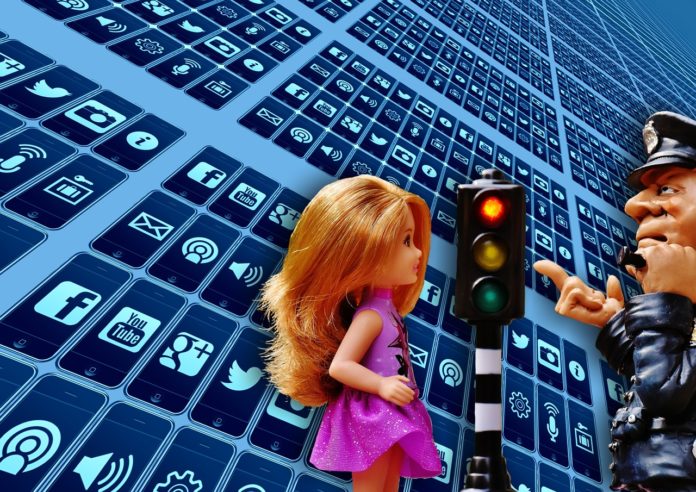The excitement around the first day of school never grows old. The oversized backpacks and school uniforms on children will never lose its cute factor. Unless your heart has been in a Covid-19 vaccine freezer, it brightens up anyone’s day to see parents posting pictures of their children in all their cuteness. And yes, in an ideal world, parents should be able to share their joy with their social networks, but this is not an ideal world. So if you like “sharenting” – the phenomenon of parents putting information about their children online this is for you.
Murray Hunter, digital rights activist and author of Boris the BabyBot, a children’s book about data privacy and surveillance says it’s important to set boundaries. In the book, Hunter shows that surveillance is an invisible risk. Too often it’s difficult for us to understand our privacy and the value of our data until it is too late. Apart from real world dangers like paedophillia and kidnapping, there are also other dangers like data collection. Allowing access to the images of children feeds into nefarious online strategies like consumer manipulation, electoral manipulation, racial profiling and political repression.
Be specific about permissions
“If you are sharing pictures of your kids, ask yourself whether those pictures need to be completely public versus something that is only shared with your Facebook friends,” says Hunter.
He adds that it’s important for parents to clearly articulate personal protocols around photos of children on social media. These protocols should be shared with friends and relatives. The views of children should also be included in these discussions.
Children’s agency
Consent is something that should be taught to children from a young age especially when it comes to social media posts. Children should have agency to decide whether they want their photos to be shared online. Hunter says it’s important that children are empowered with the information to make these decisions. Children should be able to tell their parents and others whether they want their photo taken and posted online. There is an issue of consent – would your child agree to their pictures being posted online?
Privacy settings are a life-saver
Most social media apps have settings to limit an audience. You can block entire groups of people from viewing your uploads of minor children. Use these settings and limit minor children’s imagery to only close family and friends. Make sure to use social media platforms that have privacy settings like Facebook and Instagram as compared to Twitter. But even with privacy settings there are still security concerns. People can screenshot and save your photos and share them beyond your protected circle. Even when you delete your pictures, they still live on in the internet archives. It’s important to be aware of this and make an informed decision.
Take caution to not post any images of the child’s school badge, address, school name
This is not being over-protective. It is necessary and those are minor details that can lead to a child being tracked, stalked and abducted. Make sure the posted pictures give vague or no detail of where the child is. You can even blur out your child’s face or take the picture from any angle which wouldn’t expose the child in any way. In general when posting pictures of children, use your judgement. Don’t post any pictures of your children that would firstly embarrass them later in life and secondly would make them uncomfortable. Avoid posting pictures of your children in the bath or naked.
Post nothing.
You can make the informed choice to not post any visuals of minor children. Go old school and take pictures, have them developed and put it in an album. If you don’t want to worry about your children online, then rather just don’t post anything at all. You can also use an online photo album platform which gives access to only certain people to view the pictures.
Media should be constantly aware of the rights of the child.
The South African National Editors Forum explicitly states in its Codes of Ethics and conduct that exceptional consideration must be employed when reporting about children. A parent/legal guardian must consent to the child being interviewed and photographed. The child’s best interest is of paramount importance. The Bill of Rights in the South African Constitution enshrines this. Even if consent is granted we should exercise caution when reporting about children- and not disclose personal information criminals can use.
It’s difficult not to post pictures of your children on the internet especially when they are being cute and adorable. It’s also difficult dealing with the many voices and opinions telling you to do things in a certain way. So the best thing is to remember to be cautious, understand your reasons for posting, get consent from your children and be as safe as possible.
Compiled by Ling Shepherd and Fatima Moosa.









